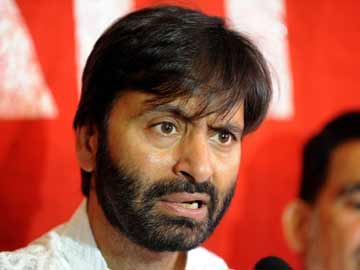New Delhi, Jan 24: Although India's Ujjwala programme encouraged adoption of liquefied petroleum gas (LPG) for cooking among the poor, households availing the scheme have not shifted away from using highly polluting fuels like firewood, a study reveals.
The researchers, including those from the University of British Columbia (UBC) in Canada, found that additional incentives to encourage regular use of cooking gas are necessary for a complete transition to clean cooking fuel among poor rural households.
They noted that about 2.9 billion people across Asia, Africa, and Latin America burn solid fuels like firewood to meet their cooking energy needs.
This has significant negative implications for public health, the environment, and societal development, according to the researchers.
Through the Pradhan Mantri Ujjwala Yojana (PMUY), India has provided capital cost subsidies to poor women to adopt a clean-burning cooking fuel or LPG.
The researchers explained that within the first 40 months of the scheme, more than 80 million households obtained LPG stoves.
However, the full benefits of LPG adoption depend on near complete replacement of polluting fuels with LPG, according to a research-based policy brief published in the journal Nature Energy.
The scientists said this cannot be assumed solely on the basis of LPG presence in the household.
"Our research shows that Ujjwala was able to attract new consumers rapidly, but those consumers did not start using LPG on a regular basis," Abhishek Kar, a postdoc at Columbia University in the US, told PTI.
The study analysed LPG sales data for over 25,000 consumers, including PMUY beneficiaries, as well as general rural LPG consumers in Koppal district of Karnataka.
The scientists employed data covering all LPG purchases of PMUY beneficiaries through their first year in the programme.
They also assessed the general rural population's purchases during their first five years as consumers to assess the effect of experience on use.
The findings estimate that an average rural family needs to purchase five 14.2 kilogramme-cylinders annually to meet half of their cooking needs.
However, the study said just seven per cent of PMUY beneficiaries in Koppal purchased five or more cylinders annually, suggesting that the beneficiaries seldom use LPG.
The general (nonPMUY) consumers in this region use on average two times more LPG cylinders than PMUY beneficiaries, the researchers noted.
Yet, only 45 per cent of nonPMUY consumers use five or more cylinders per year -- even after several years of experience with LPG, they said.
The team assessed price and seasonal factors affecting LPG use among the general population over a three-year period.
It found that LPG consumers are sensitive to price and seasonality -- LPG cylinder refill rates are lower in the summer when agricultural activity is limited, and cash is scarce.
"There was no scheme incentives to promote use, except general LPG subsidies which is available to all, including the urban middle class," said Kar, who was a Ph.D. scholar at UBC when the research was published.
"If there is no additional income, what cost would a poor family on an already tight budget cut to pay for an extra expense on a regular basis.
"Ujjwala has started the scheme of 5 kg-cylinder in response, but the impact of that on LPG sales is still publicly unknown," he said.
These findings, the researchers noted, suggest the need for additional measures to promote regular LPG use for all rural populations.
Although the finding come from a single district in Southern India, it may also apply to other areas with similar socio-economic conditions, they said.
A more expansive evaluation of PMUY would help design targeted incentives to transform infrequent users to regular users, according to the researchers.
 Srinagar, Dec 3: Separatist group Jammu and Kashmir Liberation Front or JKLF on Monday alleged its chairman Mohammad Yasin Malik and his family had to spend several hours on road in Delhi after they were forced to leave the hotel booked by them.
Srinagar, Dec 3: Separatist group Jammu and Kashmir Liberation Front or JKLF on Monday alleged its chairman Mohammad Yasin Malik and his family had to spend several hours on road in Delhi after they were forced to leave the hotel booked by them.





Comments
Add new comment